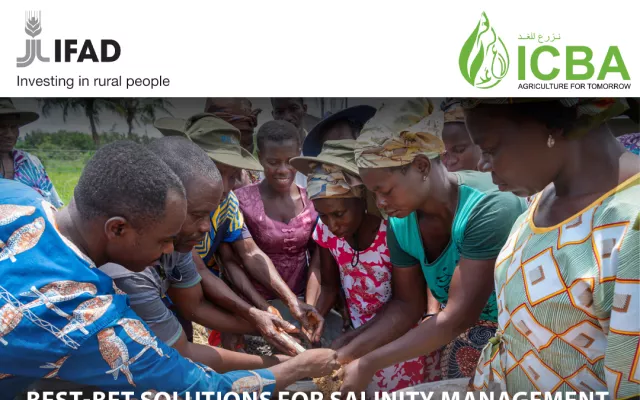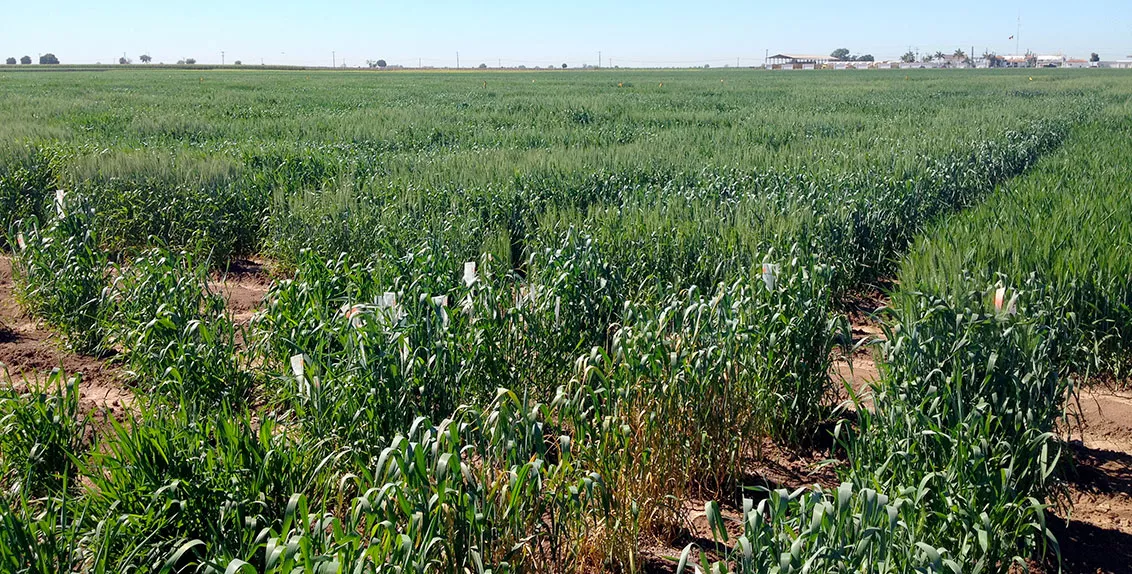Major study sheds new light on untapped potential of ancestral wheat germplasm
25 October 2021
A recent study by a team of scientists from 15 organizations, including the International Center for Biosaline Agriculture (ICBA), led by the International Maize and Wheat Improvement Center (CIMMYT) shows that a range of valuable traits in wild wheat accessions from different gene banks across the world could help to improve existing global breeding programs.
Published in Nature Food, the study tracks footprints of diverse ancestral wheat relatives in bread wheat. It highlights their importance for enriching modern elite wheat cultivars and improving stress adaptation of wheat under climate change scenarios.
Bread wheat is a crop of global importance and has encountered severe diversity bottlenecks during its evolution due to different factors, including domestication and breeding. However, due to the large and complex genome of wheat, which constitutes about 85 percent of repetitive DNA, the crop has a good buffering capacity (an ability to accept the foreign gene without changing the genetic structure of the crop). It can also accommodate substantial introgression (the introduction of genes from the gene pool of one species into that of another during hybridization) from ancestral germplasm. Despite this, breeders avoid wild introgression in their germplasm because of the time required to sieve out undesirable genes it brings along.
The development of new genomics and bioinformatics tools now allows precise monitoring of the introgressed segments and filters associated traits, greatly enhancing the possibilities of exploiting this previously underutilized variation.
For this study, the authors used three sets of pre-breeding lines generated by three-way crosses of exotics lines with elites. These pre-breeding lines are being used globally by wheat researchers to discover novel genes associated with improved adaptation under climate change scenarios.
Dr. Prashant Vikram, Post-Doctoral Fellow - Plant Breeder at ICBA, and one of the co-authors who conceived and designed this study, said: “The currently adopted long-term approaches to introgression of exotic alleles, a variant form of a gene, into elite cultivars need substantial transformation. In this study we report the ancestral genome contribution to the populations of pre-breeding lines derived from strategic three-way crossing schemes among diverse exotics and the best historical elites - 366 diverse exotics and 25 historical elite wheat lines. A total of 2,867 pre-breeding lines were developed in which 95 are used in breeding programs and a few of them are being pursued in the varietal pipelines of national agricultural research systems.”
Dr. Prashant Vikram advocates a modified breeding selection strategy that focuses on a slight compromise on adaptive traits (height and flowering). This strategy enhances the existing genetic diversity and improves the chances of useful allele introgression from wild landraces preserved in different gene banks.
This study presents a great leap forward in the mobilization of gene bank variation to the breeding pipelines.
Overall, the study argues that identification and effective utilization of natural variation in crops is essential to addressing challenges to global food security due to factors like climate change and population growth.










